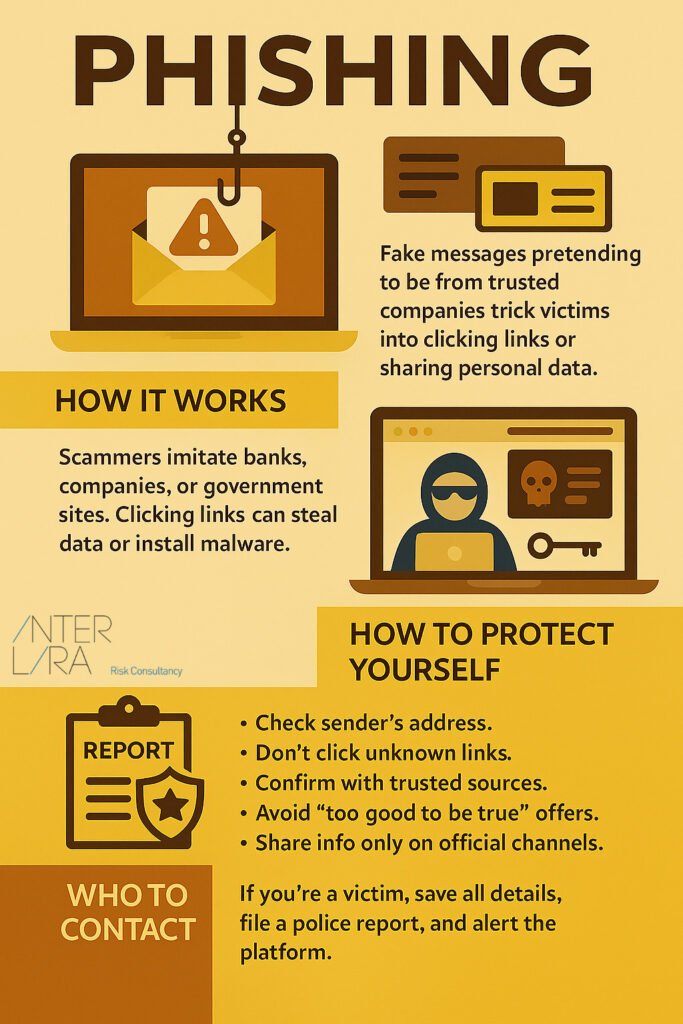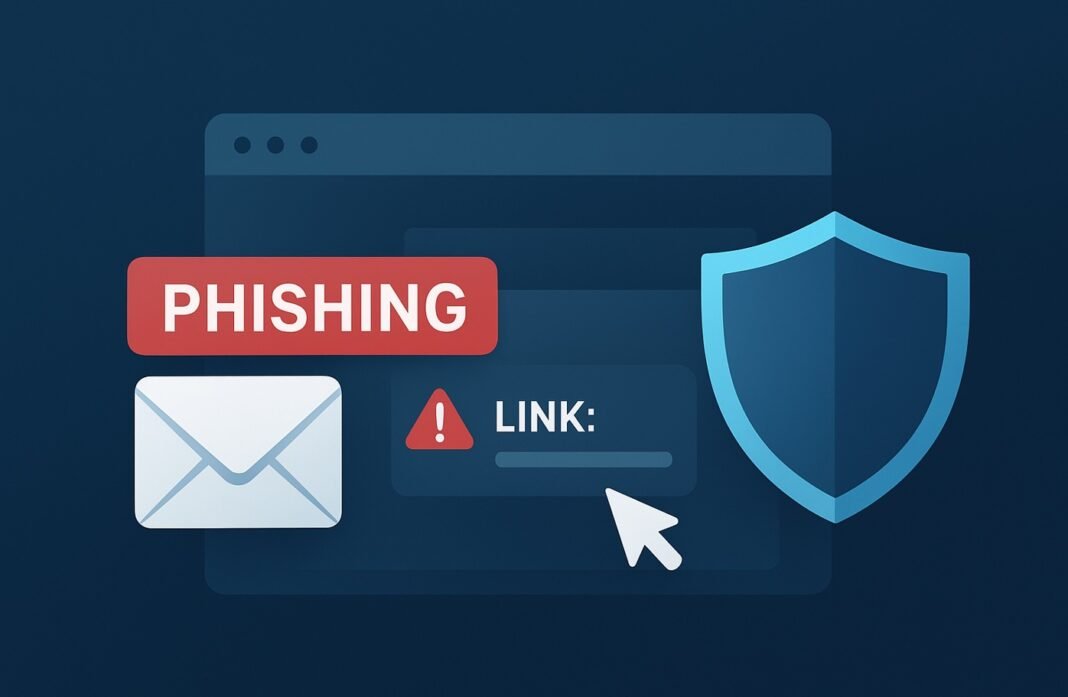Online scams have become increasingly common, demanding greater attention to the links and online content we interact with daily. Cybercriminals are constantly creating new methods to deceive people for financial gain, ranging from falsified payment receipts to fake technician impersonations. In Brazil, around 71% of the population has already fallen victim to this type of crime, which shows the need for caution when clicking on links in WhatsApp messages, emails, or SMS, as well as avoiding sharing personal information with strangers. To reduce risks, it is essential to understand how these scams work, recognize their main types, learn what to do if you are targeted, and adopt preventive measures to protect your data and avoid financial losses.
This article is part of a series on scams and frauds. You can read the other texts here.
1. Phishing
Phishing is one of the most common cyber scams and involves deceiving victims through fake messages that appear to be from legitimate companies. Criminals send emails, SMS messages, or messages on apps like WhatsApp, asking them to click a link or download a file. By doing so, the user exposes their device to malicious software or provides sensitive data, such as credit card numbers, banking information, and personal documents.
– How does it work
Scammers pose as banks, well-known companies, or even government agencies, such as the Federal Revenue Service, sending links that lead to fake websites that look identical to the originals. In some cases, they even use videos and audio manipulated with artificial intelligence, imitating the voices of famous people to increase the credibility of the scam. Once the victim clicks these links or shares information, criminals can steal data or install malware on the device. This type of software can record everything you type, turn your computer into a “zombie machine,” or be used to carry out large-scale attacks against companies.
– How to protect yourself
- Always check the sender’s email address and be wary of suspicious contacts.
- Do not click on links or download files from unknown senders.
- Even if the message comes from someone close to you, confirm the source before opening links.
- Beware of promotions with prices significantly lower than market value or promises of easy money
- Never provide personal or banking information outside of your institution’s official channels.
- For government websites, check that the address ends with “.gov.br,” never “.com” or “.net.”
– Who should you contact
If you are a victim of phishing, write down all possible information about the attacker, such as links, contact details, and usernames. File a police report and inform the social network where you received the message about the incident. This will help with investigations and reduce the scope of the scam.





